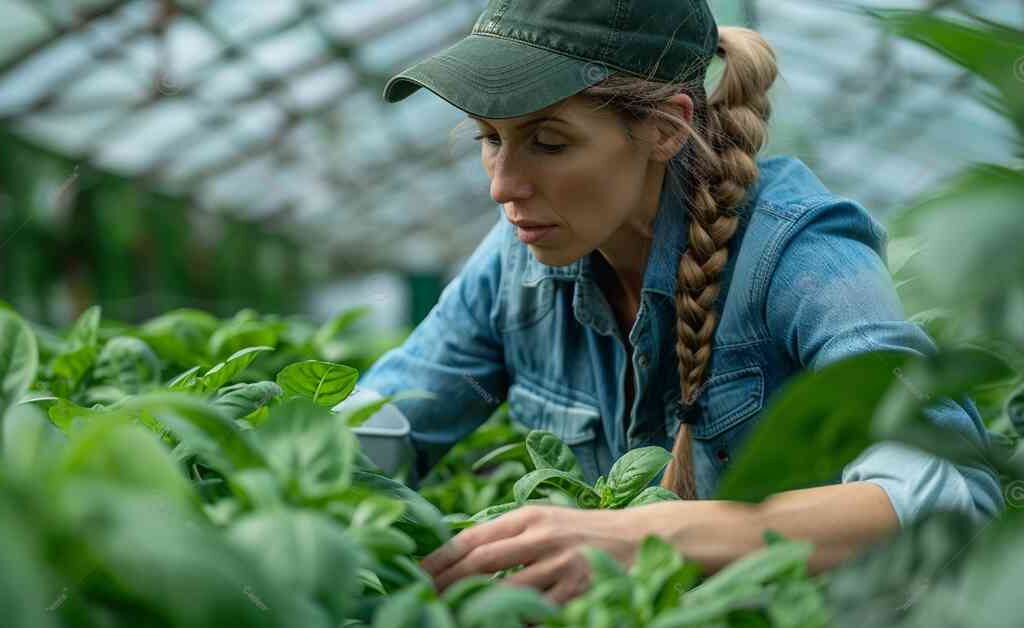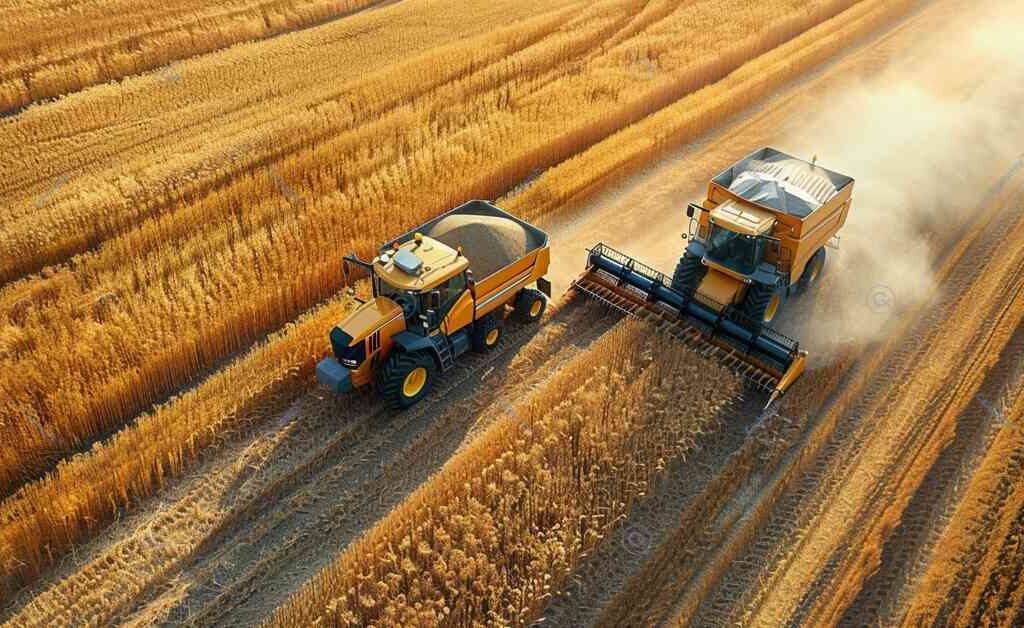The United States Department of Agriculture (USDA) plays a pivotal role in the nation’s agricultural landscape, supporting farmers, ranchers, and consumers while ensuring food safety, promoting sustainable practices, and enhancing rural development. As a significant federal agency, the USDA offers a wide range of career opportunities across various fields, including science, engineering, economics, and public policy. This article provides a comprehensive guide to exploring USDA jobs, detailing the types of positions available, the qualifications required, and the pathways for entering and advancing within this essential sector.
Keywords: USDA jobs, career opportunities, agricultural careers, federal employment, job market, career advancement, public sector jobs

Understanding the USDA: Mission and Scope
Mission and Objectives
The USDA’s mission is to provide leadership on food, agriculture, natural resources, rural development, and nutrition. The agency’s goals include:
- Ensuring food safety and security
- Supporting agricultural production and conservation
- Promoting rural economic development
- Enhancing nutrition and health through food assistance programs
- Conducting research and education to improve agricultural practices
Organizational Structure
The USDA comprises several agencies and offices, each with specific responsibilities and areas of focus. Key agencies include:
- Agricultural Research Service (ARS): Conducts research to develop and transfer solutions to agricultural problems.
- Farm Service Agency (FSA): Provides financial assistance to farmers and manages conservation programs.
- Natural Resources Conservation Service (NRCS): Works with landowners to conserve soil, water, and other natural resources.
- Food Safety and Inspection Service (FSIS): Ensures the safety of meat, poultry, and egg products.
- Forest Service (FS): Manages public lands in national forests and grasslands.
Types of USDA Jobs
Scientific and Technical Positions
- Agricultural Scientist: Conducts research to improve crop yields, pest control, and sustainable farming practices. Requires a degree in agricultural science, biology, or a related field.
- Soil Conservationist: Works with farmers and landowners to develop conservation plans and implement practices to protect soil and water resources. Requires a degree in soil science, environmental science, or a related field.
- Veterinarian: Ensures the health and welfare of farm animals, inspects livestock, and monitors animal disease outbreaks. Requires a Doctor of Veterinary Medicine (DVM) degree and state licensure.
Administrative and Support Roles
- Program Analyst: Evaluates and analyzes USDA programs to improve efficiency and effectiveness. Requires a degree in public administration, business, or a related field.
- Human Resources Specialist: Manages recruitment, employee relations, and training programs for USDA employees. Requires a degree in human resources, business administration, or a related field.
- Budget Analyst: Develops and monitors budgets for USDA programs and initiatives. Requires a degree in finance, accounting, or a related field.
Field and Operational Positions
- Forest Ranger: Manages public lands, enforces regulations, and conducts fire prevention and suppression activities. Requires a degree in forestry, natural resources, or a related field.
- Food Inspector: Ensures the safety and quality of meat, poultry, and egg products through inspections and regulatory enforcement. Requires a degree in food science, animal science, or a related field.
- Loan Officer: Provides financial assistance and loans to farmers and rural businesses. Requires a degree in finance, economics, or agricultural business.
Qualifications and Requirements for USDA Jobs
Educational Requirements
The educational requirements for USDA jobs vary depending on the position. Generally, scientific and technical positions require specialized degrees in fields such as agricultural science, biology, environmental science, or veterinary medicine. Administrative and support roles typically require degrees in public administration, business, finance, or human resources. Field and operational positions often require degrees in forestry, natural resources, food science, or related fields.
Experience and Skills
In addition to educational qualifications, USDA jobs often require relevant experience and specific skills. For example:
- Agricultural Scientists should have experience in conducting research, analyzing data, and publishing findings.
- Soil Conservationists should have experience working with landowners and developing conservation plans.
- Veterinarians should have clinical experience and knowledge of animal health regulations.
- Program Analysts should have strong analytical and problem-solving skills, as well as experience in program evaluation.
- Forest Rangers should have experience in land management, fire prevention, and enforcement of regulations.
Certifications and Licenses
Certain USDA positions may require additional certifications or licenses. For instance:
- Veterinarians must have a Doctor of Veterinary Medicine (DVM) degree and state licensure.
- Food Inspectors may need certification in food safety and inspection protocols.
- Loan Officers may require certification in financial planning or agricultural lending.

Applying for USDA Jobs
Job Search Resources
To find USDA job openings, candidates can utilize various resources:
- USAJOBS: The official job site for the U.S. federal government. It lists all current USDA job openings and provides detailed information on application requirements and procedures.
- USDA Careers Website: The USDA’s official careers page provides information on the agency’s mission, values, and career opportunities.
- Professional Associations: Organizations such as the American Society of Agronomy and the Society of American Foresters often list job openings and career resources for agricultural professionals.
Application Process
The application process for USDA jobs typically involves several steps:
- Create a USAJOBS Account: Candidates must create an account on the USAJOBS website to apply for federal positions.
- Prepare Application Materials: This includes a resume, cover letter, and any required supporting documents such as transcripts, certifications, or writing samples.
- Submit Application: Applications are submitted through the USAJOBS portal. Candidates should ensure that all required materials are included and that the application is tailored to the specific job announcement.
- Assessment and Interviews: Qualified candidates may be invited to participate in assessments or interviews to evaluate their suitability for the position.
- Background Check: Final candidates may undergo a background check and security clearance process.
Career Advancement and Professional Development
Continuing Education and Training
To advance their careers, USDA employees can pursue various continuing education and training opportunities:
- Professional Development Programs: The USDA offers various training programs and workshops to enhance employees’ skills and knowledge in areas such as leadership, project management, and technical expertise.
- Advanced Degrees: Pursuing advanced degrees in relevant fields can open up higher-level positions and specialized career paths within the USDA.
- Certifications: Obtaining professional certifications in areas such as project management, human resources, or food safety can enhance career prospects.
Networking and Mentorship
Building a professional network and seeking mentorship can significantly impact career advancement:
- Professional Associations: Joining organizations such as the American Society of Agronomy, the Soil and Water Conservation Society, or the National Association of State Departments of Agriculture can provide networking opportunities, access to industry resources, and professional development events.
- Mentorship Programs: Participating in mentorship programs within the USDA or through external organizations can provide guidance, support, and career advice from experienced professionals.
Leadership Opportunities
USDA employees can pursue leadership roles to further their careers and contribute to the agency’s mission:
- Supervisory Positions: Taking on supervisory roles such as team leader, project manager, or department head can provide valuable leadership experience and opportunities for career advancement.
- Cross-Departmental Projects: Participating in cross-departmental projects and initiatives can broaden employees’ knowledge, skills, and professional networks.
- Leadership Training Programs: The USDA offers leadership training programs designed to develop the skills and competencies needed for higher-level positions within the agency.
Starting an Agricultural Business with USDA Support
For those interested in starting their own agricultural business, the USDA provides various resources and support programs:
Financial Assistance Programs
The USDA offers financial assistance programs to help farmers and agricultural entrepreneurs start and grow their businesses:
- Farm Service Agency (FSA) Loans: The FSA provides direct and guaranteed loans to farmers and ranchers for operating expenses, equipment purchases, and land acquisition.
- Rural Development Grants: USDA Rural Development offers grants and loans to support rural businesses, including value-added producer grants and rural business development grants.
- Natural Resources Conservation Service (NRCS) Programs: NRCS provides financial and technical assistance to implement conservation practices that improve environmental sustainability and farm productivity.

Business Planning and Support
The USDA offers resources and support for business planning and development:
- Small Business Development Centers (SBDCs): SBDCs provide free business consulting and training services to entrepreneurs, including assistance with business planning, market research, and financial management.
- Agricultural Extension Services: Cooperative Extension Services offer educational programs and resources on various agricultural topics, including crop and livestock production, pest management, and sustainable farming practices.
- Online Resources: The USDA’s website offers a wealth of information on starting and managing an agricultural business, including guides on business planning, marketing, and regulatory compliance.
Marketing and Market Access
The USDA supports agricultural businesses in accessing markets and promoting their products:
- Agricultural Marketing Service (AMS): AMS provides programs and services to help farmers and businesses market their products, including organic certification, commodity grading, and market news reports.
- Farmers Market Promotion Program (FMPP): FMPP offers grants to support the development and expansion of farmers markets, community-supported agriculture (CSA) programs, and other direct-to-consumer marketing initiatives.
- Export Assistance: The USDA’s Foreign Agricultural Service (FAS) provides resources and support for exporting agricultural products, including market research, trade missions, and export financing programs.
Conclusion and Call to Action
Conclusion and Call to Action
While local farm jobs offer comfort and familiarity, exploring international opportunities can provide substantial professional and personal benefits. Higher wages, exposure to innovative practices, and the chance for significant career advancement make global farm jobs a valuable option for job seekers. By broadening their search, agricultural professionals can gain new perspectives, contribute to knowledge exchange, and support the democratization of information in the farming sector.
If you are interested in expanding your horizons and exploring farm jobs abroad, consider joining the Cademix Acceleration Program. Our consultancy services and educational programs are designed to support job seekers in navigating the complexities of the global job market and achieving their career goals.
Discover our Cademix Career Autopilot program and learn how we can help you secure international farm jobs and advance your agricultural career. For additional resources and job listings, visit Indeed, LinkedIn, and AgriJobFinder.

